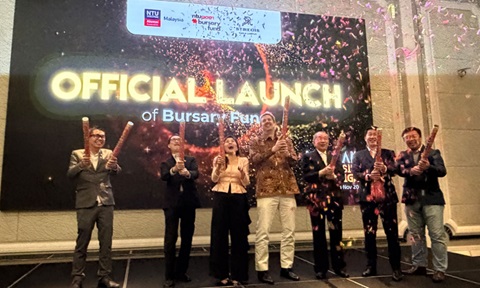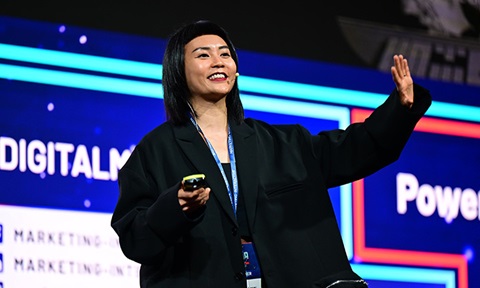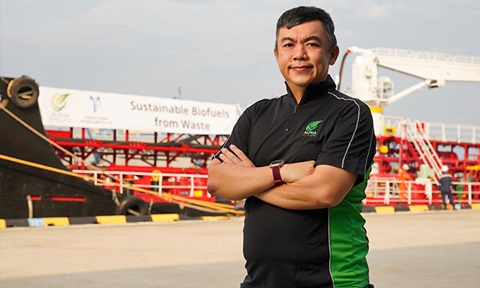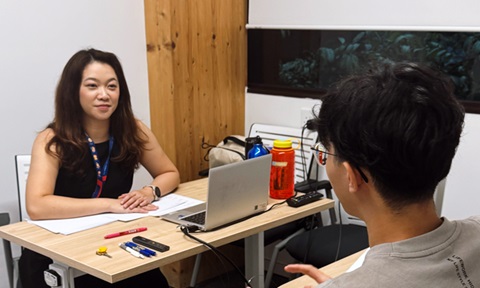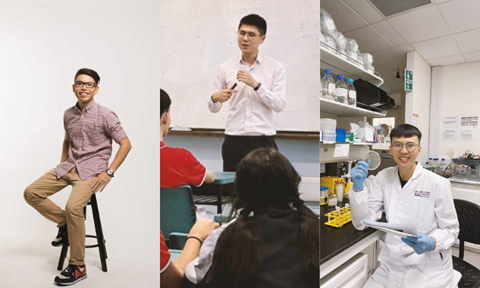Alumni kickstart their visions into ventures
Three alumni in the business of producing household products and publishing children books turned their ideas into reality through crowdfunding as well as receiving support from NTUitive. We find out about their entrepreneurial journey.
By Nur Isyana Isaman
It was 2018 when Kenneth Li (NBS/2011) thought his business in porcelain household wares was finally taking off. His products were becoming popular and sold at major department stores across Asia. While his company, Swanz Brand, is based in Singapore, the bulk of his revenue, about 65%, came from distributors in Taiwan.
But within months, he lost everything. His Taiwanese distributors vanished owing him a five-figure sum. To make matters worse, they found his manufacturer in China and struck a deal for direct purchasing, which stripped him of his S$100,000 manufacturing investment.
After that incident, Kenneth moved most of his operations to produce household products such as porcelain mugs and bottles in-house and turned around his business through over 20 crowdfunding campaigns on Zeczec and iCook in Taiwan, Makuake in Japan, Wadiz in South Korea, and Kickstarter.
“I went to Taiwan and re-established my company with its own assembling capabilities. In 2019, I went on Zeczec to raise brand awareness and financial backing to launch a new porcelain insulated bottle. It was successful, and I raised over NT$10 million (about S$500,000) from the product backers.”
In 2020, Kenneth launched another new porcelain insulated cup through iCook, a recipe database and crowdfunding platform in Taiwan, and raised another NT$10 million.
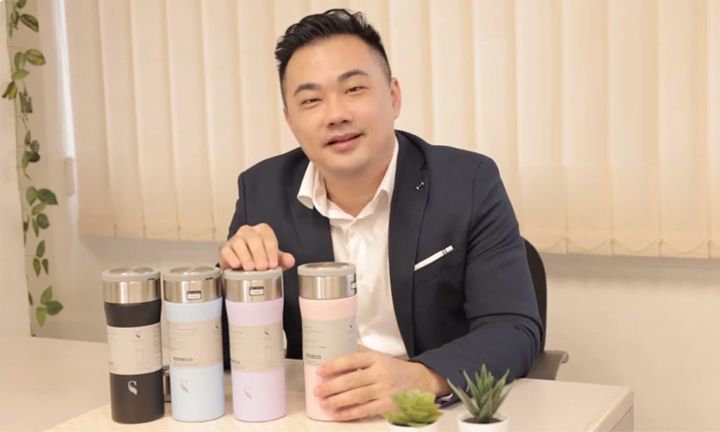 Kenneth Li introduced his backers to the porcelain thermal flask tumbler. (Photo Credit: Swanz Brand)
Kenneth Li introduced his backers to the porcelain thermal flask tumbler. (Photo Credit: Swanz Brand)
Last year, the 38-year-old and two other first-time entrepreneurs co-founded a new company, Morph Brand. This time, he sought grants in consultation with the innovation and enterprise arm of his alma mater, NTUitive, and successfully received S$50,000 from the “Startup SG Founder ‘Start Track’ Grant” disbursed by Enterprise Singapore.
His new company has developed and launched a graphene-coated lunch box, raising over S$35,000 through a successful crowdfunding campaign on Kickstarter. The lunch box is now available on other e-commerce platforms, such as Shopee.
Last month, Kenneth returned to his alma mater to give a talk on crowdfunding for business success. He said, “NTUitive provides us with advice and encouragement to keep up our entrepreneurial spirit. It is great to get continued support from NTU even though I graduated long ago.”
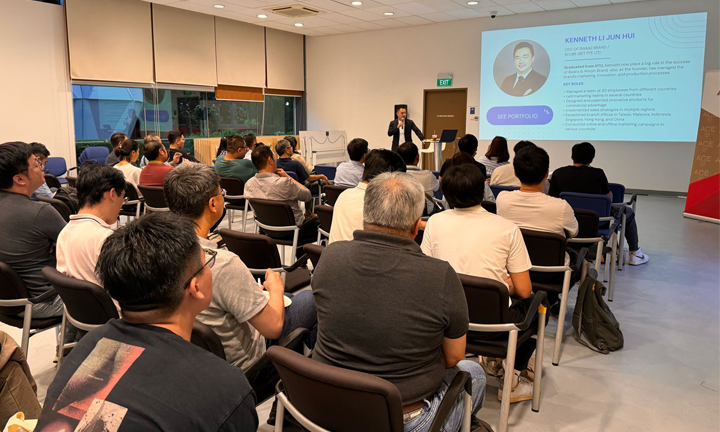 Kenneth sharing his Kickstarter experience during an NTUitive talk last month (Photo credit: LinkedIn/ACE.SG).
Kenneth sharing his Kickstarter experience during an NTUitive talk last month (Photo credit: LinkedIn/ACE.SG).
Kat Neo, Deputy Director of Venture Building at NTUitive, the university’s innovation and enterprise arm, said that the university also offers NTU alumni, staff and students with the Multi-Disciplinary Team (MDT) project fund of up to S$10,000 for them to develop innovative and viable business ideas. For example, alumnus Kevin Zhang (TIP/2018) was awarded the grant during the early stage of establishing his company, ANOR Technologies, which specialises in the development of intelligent sensing products and solutions.
Kat said, “Alumni looking to launch a business need funding, either through a business loan or self-funding. If you own a startup and have little experience, perhaps you can consider crowdfunding. The feasibility of crowdfunding depends on the type of business. It is generally very hard to get investments for consumer products. Venture capitalists, especially those in this region, are not very keen to invest in business-to-consumer products because a lot of money is usually spent on marketing. Another helpful option to start a business is to apply for grants.”
Brewing success
Crowdfunding enables entrepreneurs to raise small amounts of capital from a vast community of individual investors interested in preordering their products. These individual investors are called “backers” for backing or supporting the product’s crowdfunding campaign. In return, backers stand to receive a set of the product they have invested in, should the campaign conclude successfully. If the campaign did not meet the target amount, the backers will not pay and the entrepreneurs will not get any funding.
Another alumnus using crowdfunding to kickstart a business is Leon Foo (NBS/2006), who founded a speciality coffee boutique, PPP Coffee. He is now the CEO of Morning, a coffee tech startup focusing on consumer products.
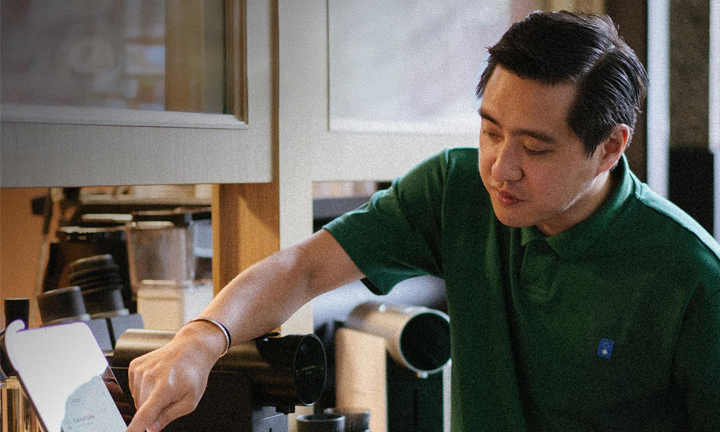 Leon Foo brewing coffee using the coffee machine by his company, Morning. (Photo Credit: Facebook/Morning)
Leon Foo brewing coffee using the coffee machine by his company, Morning. (Photo Credit: Facebook/Morning)
Leon and his co-founder had the idea of producing a coffee capsule machine that combines the precision features of professional coffee equipment with Internet-of-Things capabilities that give consumers access to recipes created by coffee roasters. He took this idea to Kickstarter in late 2020, and his campaign was fully funded in two days. At the end of the month-long campaign, he received almost S$180,000.
Thanks to the successful campaign, he could start producing the coffee machines. During that period, he made sure to provide regular updates to his 318 backers before shipping the machines to them in early 2021. Following the successful launch on Kickstarter, Leon continues selling the machine on his company website.
He recently launched a second machine on another crowdfunding site, Indiegogo, and raised over $370,000 when the campaign closed last month. His team is now preparing to ship the backers’ orders.
Aiming to be a bestseller
Stay-at-home mum Priscilla Hoon-Tan (NBS/2010) went on Kickstarter to turn her passion project of launching a children’s book series into a reality. She managed to raise S$60,000 and while she was on Kickstarter, book publisher Marshall Cavendish contacted her to offer her a publishing contract.
She and her husband worked with the publisher to print the children’s books called the Awesome Women Series, which focus on modern female role models to inspire young girls. Her books are now sold online through her website and are on consignment at some boutique retailers in Singapore.
“I have no entrepreneurial background. This was during the COVID-19 pandemic in 2020, so there were not many options for marketing and outreach. Kickstarter proved to be a good platform to validate ideas and get feedback. I will continue writing and am working to get on Amazon to expand the reach,” said the 36-year-old former finance professional who has two daughters.
 Priscilla Hoon-Tan reading one of the books she created to her younger daughter. (Photo Credit: Awesome Women Series)
Priscilla Hoon-Tan reading one of the books she created to her younger daughter. (Photo Credit: Awesome Women Series)
Customisation for different crowdfunding markets
Crowdfunding may sound easy, but the failure rate is high. According to Statista, the success rate of fully funding a project on the Kickstarter website is about 41%: six out of 10 projects do not meet their funding goal.
Kenneth said the key to success is customising the offerings to different geographies. He learnt that after his most popular product on Kickstarter, a porcelain bento box which raised almost S$250,000, did not do well on crowdfunding platforms in Taiwan, Japan, and Hong Kong.
“Consumers in different countries have different needs and wants for products. Therefore, it is important to customise the product itself and its marketing plan for each domestic market in crowdfunding,” said Kenneth.
He adds, “At the end of the day, it is always about solving a pain point for consumers. I hope that the products which my companies design and innovate will bring great value to our customers and backers.”
Have a business idea? Get in touch at [email protected].

